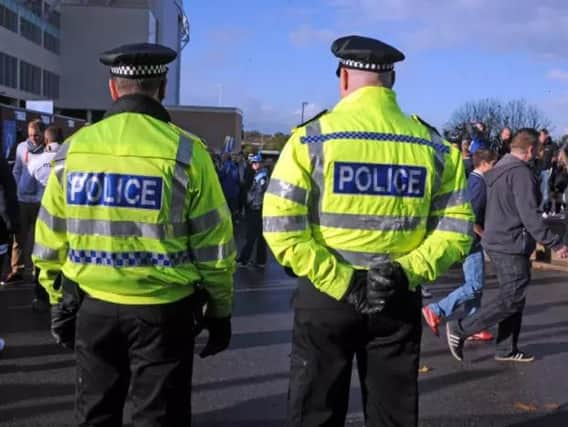Authorities face 'colossal task' to keep UK safe, warns watchdog


Max Hill QC said authorities have to perform an "extraordinary sift and assessment" as they attempt to head off the threat of attacks.
He suggested an increase in the use of terrorism prevention and investigation measures (TPIMs) for suspects who cannot be put on trial or deported may be needed.
Advertisement
Hide AdAdvertisement
Hide AdHowever, Mr Hill, who was appointed Independent Reviewer of Terrorism Legislation earlier this year, said he believed appropriate laws to counter-terrorism are currently in place.
A host of agencies including police and MI5 have come under the spotlight after it emerged perpetrators in all three of the deadly attacks that have hit Britain this year had at some point been on the radar of authorities.
Khuram Butt, ringleader of the London Bridge terror gang, had been reported to an anti-terror hotline and investigated in 2015, but officers found no evidence of attack planning.
The scale of the potential threat counter-terror teams are attempting to tackle is seen as unprecedented.
Advertisement
Hide AdAdvertisement
Hide AdThey are running about 500 live investigations involving 3,000 individuals at any one time while there are a further 20,000 former "subjects of interest" whose risk is kept under review.
Asked about Butt, Mr Hill told BBC Radio 4's Today programme: "What I think is plain is that there is material which was known about this individual to the security services, but material doesn't always translate into evidence.
"It is evidence that they need to place someone before a court.
"Where they don't have evidence and it is, on the contrary, intelligence, then it is a matter of this extraordinary sift and assessment that the security services have to perform to try to keep us all safe.
"We know that that is a colossal task."
Advertisement
Hide AdAdvertisement
Hide AdIn the wake of the latest atrocity, Prime Minister Theresa May set out plans to review the UK's counter-terror strategy to ensure police and intelligence agencies have the powers they need to deal with the threat.
Mr Hill said: "It's perfectly natural that we should all feel that we must do more, we must do something to combat what we are facing.
"My view coming into the scrutiny which we are told the Prime Minister wants to conduct is that we do have the appropriate laws in place, and that essentially the police and security services, and those whose job it is to keep us safe, do have the powers at their disposal."
There have been calls for greater use of TPIMs, which are used in cases where someone who is deemed to pose a threat to security cannot be prosecuted, or in the case of foreign nationals, deported.
Advertisement
Hide AdAdvertisement
Hide AdSubjects can be placed under restrictions including relocation to another part of the country, wearing an electronic monitoring tag and limited use of computers and phones. At the end of November last year, there were seven TPIM notices in force.
Mr Hill said the orders have proved to be an effective mechanism.
"There is a question in the current circumstances over whether there may be a need for a proportionate increase in the use of the existing TPIM powers," he added.
The watchdog also said it was "entirely right" the spotlight should fall on technology companies - but questioned whether legislation and fines were needed.
Advertisement
Hide AdAdvertisement
Hide AdIt follows proposals agreed by Mrs May and French President Emmanuel Macron which could see social media firms hit by financial penalties if they fail to remove extremist propaganda and terrorist material.